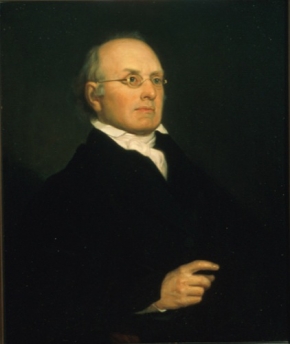You are here
Circuit Court Opinions:
Associate Justice Joseph Story, United States v. Bevans (1816)

United States v. Bevans, 24 F. Cas. 1138 (C.C.D. Mass. 1816) (No. 14,589) [First Circuit], reversed, 16 U.S. 336 (1818)
U.S. Marine John Bevans was prosecuted in federal court for a murder committed on a naval ship stationed in Boston Harbor. The prosecution was brought pursuant to the Crimes Act of 1790—the first statute defining federal crimes—which gave the federal courts jurisdiction over murders committed “upon the high seas, or in any river, haven, basin or bay, out of the jurisdiction of any particular state.” Justice Story instructed the jury that the circuit court had jurisdiction under this provision, finding that the ship was on “the high seas” because it was “at a considerable distance from the shore, and without low water mark.” Story noted, however, that he and the U.S. district judge had agreed to certify the question of jurisdiction to the Supreme Court if the jury convicted Bevans, which it did.
The Supreme Court reversed Story’s ruling. In an opinion by Chief Justice John Marshall, the Court found that Boston Harbor was “unquestionably within the original territory of Massachusetts.” The Constitution’s definition of the judicial power of the United States to include admiralty and maritime cases did not constitute a cession of the harbor to the United States, Marshall wrote. Bevans was an important precedent in defining the scope of the federal courts’ jurisdiction over crimes committed upon the high seas.
The case also reflected the Court’s continued rejection of Story’s attempts to broaden federal criminal jurisdiction. A few years earlier, in United States v. Coolidge (1813), Story had ruled that the circuit court had jurisdiction over the seizure of a ship on the high seas despite the lack of a federal statute defining the crime. The Supreme Court reversed, reaffirming its holding in United States v. Hudson and Goodwin (1812) that the federal courts lacked jurisdiction over common law crimes.
